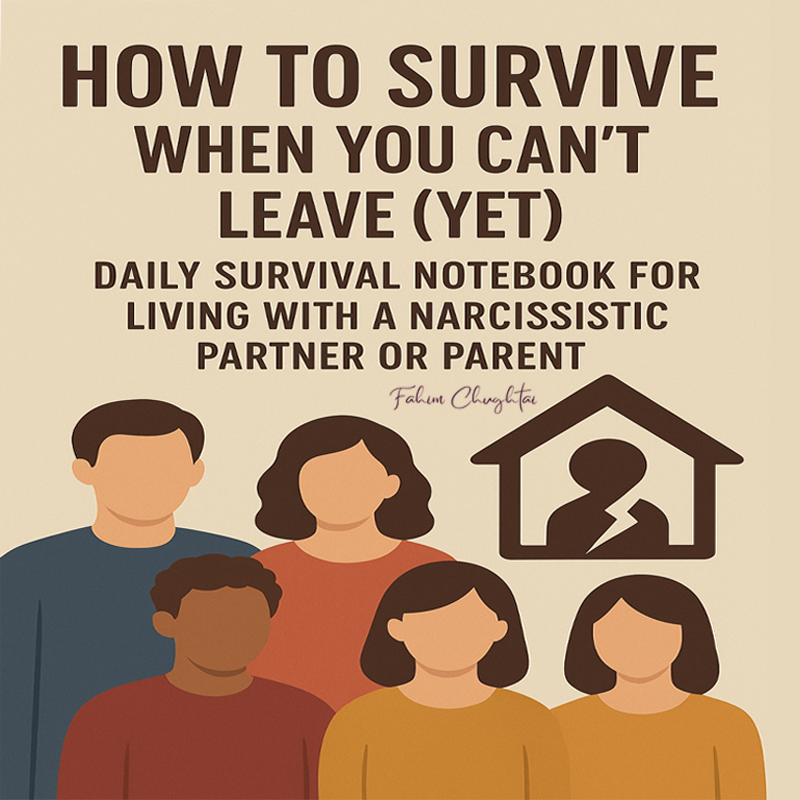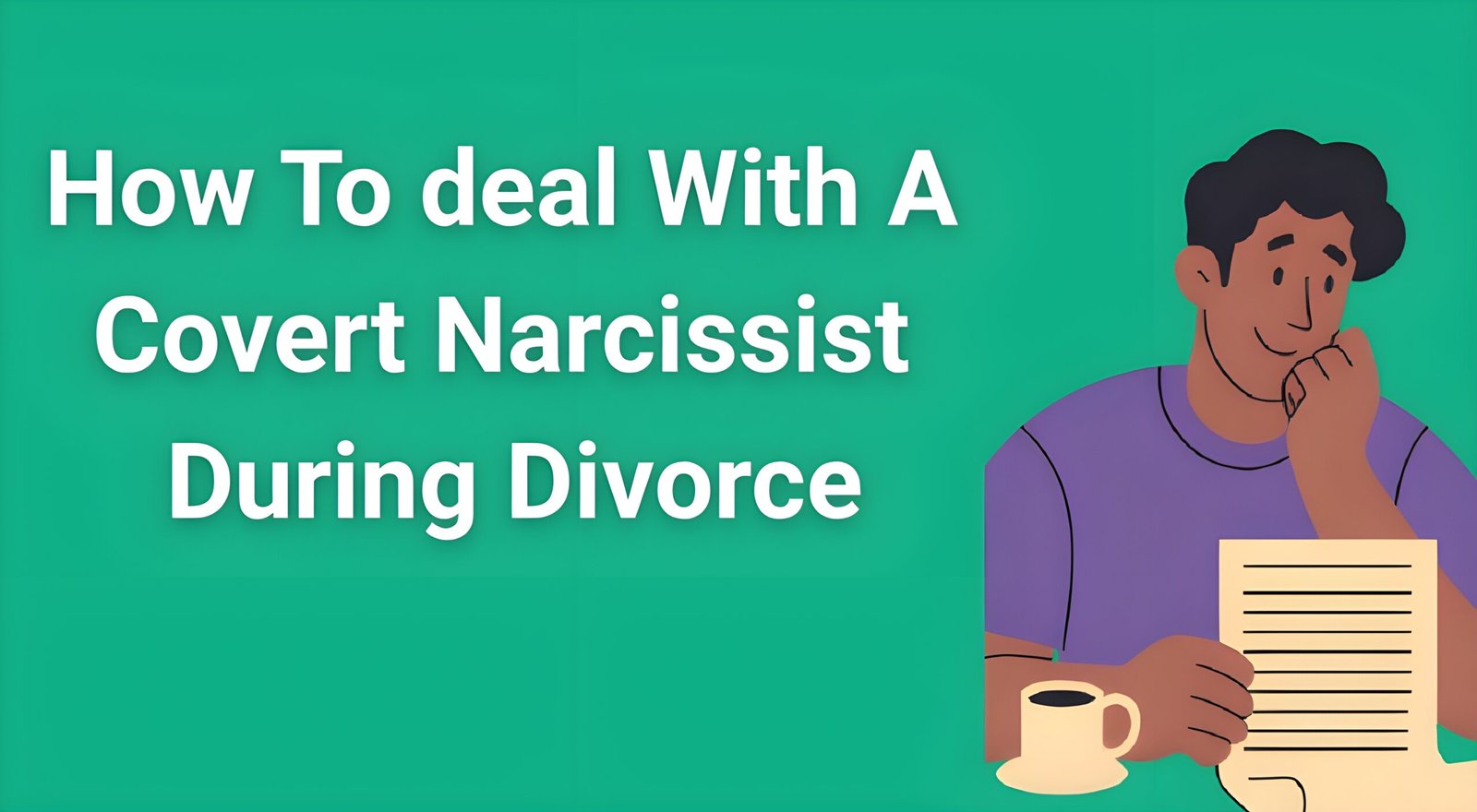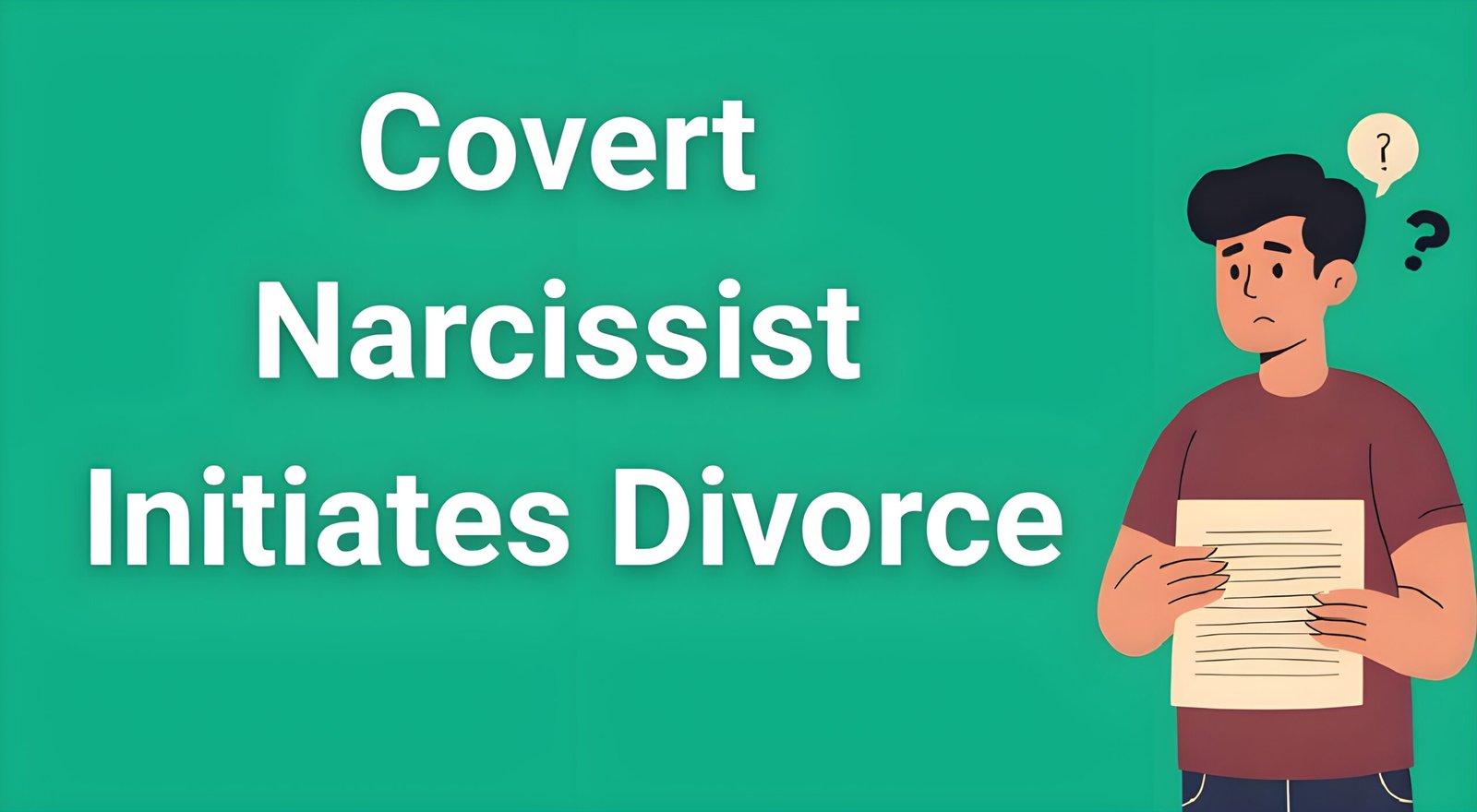Learning how to deal with a covert narcissist during divorce can feel overwhelming, especially when you’re already emotionally drained from years of manipulation. Unlike overt narcissists who display their grandiosity openly, covert narcissists hide behind a mask of vulnerability and victimhood, making their toxic behaviors harder to recognize and even more challenging to navigate during legal proceedings.
- Understanding Covert Narcissistic Behavior in Divorce
- Legal Strategies for Dealing with Covert Narcissist Divorce
- Financial Protection During Covert Narcissist Divorce
- Emotional and Psychological Protection Strategies
- Protecting Your Children During the Process
- Communication Strategies for High-Conflict Divorce
- Working with Mental Health Professionals
- Practical Daily Survival Strategies
- Recovery and Moving Forward
- Building Your Support Network
- Red Flags and Warning Signs
- The Path to Freedom and Healing
- Frequently Asked Questions
- Conclusion
If you’re facing divorce from someone who exhibits covert narcissistic traits, you’re not alone in feeling confused, frustrated, or even questioning your own perceptions. This comprehensive guide will walk you through proven strategies to protect yourself legally, financially, and emotionally while dealing with a covert narcissist during divorce proceedings.
Understanding Covert Narcissistic Behavior in Divorce
Before diving into protective strategies, it’s crucial to understand what makes covert narcissists particularly challenging during divorce. Unlike their overt counterparts, covert narcissists present as shy, sensitive, or even self-deprecating individuals. However, beneath this facade lies the same core narcissistic traits: lack of empathy, sense of entitlement, and desperate need for control.
The Hidden Manipulation Tactics
Covert narcissists excel at subtle manipulation that’s difficult to prove in court. They might appear reasonable to lawyers and judges while systematically undermining you behind closed doors. Understanding these tactics is the first step in learning how to deal with a covert narcissist during divorce effectively.
Am I Dealing With a Covert Narcissist — or Just Toxic Behavior?
Gaslighting becomes their primary weapon during divorce proceedings. They’ll deny conversations, twist your words, and make you question your own memories of events. This psychological manipulation is designed to make you doubt yourself and appear unstable to others.
Financial manipulation often intensifies as divorce approaches. They may hide assets, create false financial documents, or suddenly claim poverty to avoid paying support. Covert narcissists are particularly skilled at presenting themselves as the financially disadvantaged party.
Playing the victim comes naturally to covert narcissists. They’ll paint themselves as the long-suffering spouse who tried everything to save the marriage, while portraying you as unreasonable or unstable.
Legal Strategies for Dealing with Covert Narcissist Divorce
Choosing the Right Attorney
When dealing with a covert narcissist during divorce, selecting an experienced attorney is crucial. Not all family lawyers understand the unique challenges posed by personality disorders. Look for attorneys who:
- Have specific experience with high-conflict divorces
- Understand narcissistic behavior patterns
- Won’t be easily charmed or manipulated
- Are prepared for lengthy, complex proceedings
- Have experience with psychological evaluations and expert witnesses
Documentation Is Your Best Defense
Covert narcissists rely on their ability to rewrite history and present alternative versions of events. Combat this by maintaining meticulous records:
Communication logs should include every text, email, and phone conversation. Use apps that timestamp communications and consider requesting all communication go through your attorney or a court-approved platform.
Financial documentation becomes critical when dealing with someone likely to hide assets. Gather tax returns, bank statements, investment accounts, and business records before announcing your intention to divorce.
Incident reports should detail every manipulation attempt, threat, or concerning behavior. Include dates, times, witnesses, and your emotional state at the time.
Understanding Legal Manipulation Tactics
Covert narcissists often use the legal system as an extension of their abuse. Expect them to:
- File frivolous motions to drain your resources
- Change attorneys multiple times to delay proceedings
- Use legal communications to maintain contact and control
- Present false evidence or testimony with convincing sincerity
- Exploit any legal loopholes to their advantage
Financial Protection During Covert Narcissist Divorce
Securing Your Financial Future
Financial abuse is common in narcissistic relationships and often escalates during divorce. Take these protective steps immediately:
Establish independent accounts in your name only. If you don’t have access to marital funds, start documenting this financial control as evidence of abuse.
Monitor credit reports regularly. Covert narcissists may open accounts in your name or damage your credit out of spite.
Inventory all assets including retirement accounts, insurance policies, real estate, and valuable personal property. Take photographs and keep records in a secure location.
Gather business records if your spouse owns a business. Covert narcissists often hide income through business entities or undervalue business assets.
Hidden Asset Investigation
Professional asset searches may be necessary when dealing with a covert narcissist during divorce. Consider hiring:
- Forensic accountants to trace hidden money
- Private investigators for asset discovery
- Business valuation experts for accurate assessments
- Computer forensics specialists for digital evidence
Emotional and Psychological Protection Strategies
Breaking Free from Trauma Bonds
One of the most challenging aspects of divorcing a covert narcissist is overcoming the psychological hold they maintain through trauma bonding. This neurological addiction to the cycle of abuse and intermittent reinforcement can make leaving feel impossible, even when you logically know you need to escape.
The trauma bond creates a biochemical addiction stronger than many substances, which explains why “just leave” advice feels impossible to follow. Your brain literally believes you need this person to survive, making rational decision-making extremely difficult.
Recognizing trauma bond symptoms is the first step toward freedom:
- Obsessive thoughts about your spouse despite their mistreatment
- Physical symptoms when attempting to stay away
- Defending their behavior to others
- Making excuses for their actions
- Feeling unable to function without them
Breaking the trauma bond requires specific strategies designed to rewire your brain’s response patterns. Professional help specializing in narcissistic abuse recovery can provide targeted interventions to help you regain clarity and emotional independence.
Maintaining No Contact (When Possible)
If you don’t have children together, implementing strict no contact is the most effective way to deal with a covert narcissist during divorce. This means:
- All communication goes through attorneys
- Blocking them on all social media platforms
- Avoiding places where you might encounter them
- Having trusted friends screen your calls and messages
- Using court-approved communication platforms only
Gray Rock Method for Necessary Contact
When you must maintain contact due to children or legal requirements, the Gray Rock method can protect your emotional wellbeing:
Be boring and unresponsive to their attempts at drama or manipulation. Provide only necessary information without emotional content.
Keep responses brief and factual. Avoid sharing personal information, feelings, or opinions that could be used against you.
Don’t react to provocations. Covert narcissists will test your boundaries and try to elicit emotional responses they can use as evidence of your “instability.”
Protecting Your Children During the Process
Understanding Parental Alienation
Covert narcissists often use children as weapons during divorce, engaging in subtle parental alienation tactics:
- Making themselves the “fun parent” while painting you as strict or unreasonable
- Sharing inappropriate details about the divorce with children
- Encouraging children to spy on you or report back
- Using guilt and manipulation to turn children against you
- Playing victim to gain children’s sympathy and loyalty
Documenting Concerning Parenting Behaviors
Keep detailed records of any behaviors that suggest your ex-spouse is:
- Using children as messengers or spies
- Sharing adult information inappropriately
- Attempting to alienate children from you
- Neglecting children’s emotional or physical needs
- Using children to manipulate or control you
Therapeutic Support for Children
Consider engaging a child psychologist experienced with high-conflict divorces. They can:
- Provide neutral assessment of children’s wellbeing
- Offer therapy to help children process the divorce
- Document any concerning behaviors they observe
- Serve as an expert witness if needed in custody proceedings
Communication Strategies for High-Conflict Divorce
Setting Boundaries That Stick
Learning how to deal with a covert narcissist during divorce requires establishing and maintaining firm boundaries:
Limit communication topics to children and legal matters only. Refuse to engage in discussions about the relationship, their feelings, or your personal life.
Use time limits for phone conversations. Let them know you have limited time and stick to it.
Choose your communication method carefully. Written communication provides a record, while phone calls can be recorded (where legally permitted).
Have consequences for boundary violations. If they attempt manipulation or abuse, end the conversation immediately.
Avoiding Common Communication Traps
Covert narcissists excel at drawing you into arguments or emotional reactions. Avoid these common traps:
The apology trap: They may offer seemingly sincere apologies to draw you back into their web of manipulation.
The emergency trap: Creating fake emergencies or crises to force contact and attention.
The children trap: Using children’s needs or activities to initiate inappropriate personal conversations.
The financial trap: Creating unnecessary financial discussions to maintain control and contact.
Working with Mental Health Professionals
Finding Trauma-Informed Therapy
Not all therapists understand narcissistic abuse or its effects on victims. Seek professionals who:
- Specialize in narcissistic abuse recovery
- Understand trauma bonding and its effects
- Use evidence-based treatments for complex trauma
- Don’t encourage reconciliation or “working things out”
- Validate your experiences without minimizing the abuse
Obtaining Professional Clarity
When you’re questioning your sanity or the validity of your experiences, professional assessment can provide crucial clarity. A comprehensive analysis of your situation by someone trained in narcissistic abuse patterns can help you understand exactly what you’re dealing with and provide personalized strategies for your specific circumstances.
This type of professional evaluation can validate your experiences, explain the psychological dynamics at play, and offer a roadmap for recovery that addresses your unique situation. Having expert confirmation of what you’ve endured can be incredibly healing and empowering as you navigate the divorce process.
Practical Daily Survival Strategies
When You Can’t Leave Immediately
Sometimes legal, financial, or safety concerns require you to remain in the same home during divorce proceedings. This situation requires specific survival strategies:
Create physical and emotional safe spaces within your shared environment. This might mean securing a room with a lock or establishing times when you’re unavailable for interaction.
Develop safety plans for escalating situations. Know where you’ll go and who you’ll call if things become dangerous.
Maintain separate support systems that your spouse cannot access or manipulate. Keep some relationships completely private.
Document everything while maintaining your safety. Use secure methods to record incidents and store evidence.
Learning to survive in these challenging circumstances requires specific strategies tailored to your situation. Professional guidance can help you develop a personalized plan that keeps you safe while you work toward complete separation.
Recovery and Moving Forward
Breaking Free from the Cycle
Recovery from narcissistic abuse is a process that continues long after the divorce is finalized. Understanding that your responses to abuse were normal reactions to abnormal treatment is crucial for healing.
Rebuilding your identity after narcissistic abuse takes time and often professional support. Years of gaslighting and manipulation can leave you unsure of your own thoughts, feelings, and perceptions.
Recognizing your strength is important. You survived something that many people cannot imagine enduring. That survival demonstrates remarkable resilience and inner strength.
Learning to trust yourself again is perhaps the most important part of recovery. Narcissistic abuse is designed to make you doubt your own perceptions and judgment.
Preventing Future Narcissistic Relationships
Once you understand the dynamics of narcissistic abuse, you can better protect yourself from future toxic relationships:
- Learn to recognize early warning signs of narcissistic behavior
- Understand your own vulnerabilities that may make you a target
- Develop strong boundaries and the ability to enforce them
- Build a support network of healthy relationships
- Continue working on your own emotional healing and growth
Building Your Support Network
Professional Support Team
Assembling the right professional team is crucial when learning how to deal with a covert narcissist during divorce:
Attorney: Experienced in high-conflict divorce and personality disorders Therapist: Specializing in narcissistic abuse recovery and trauma Financial advisor: To help secure your financial future Accountant: For complex financial discovery and tax implications
Personal Support System
Trusted friends and family who understand the situation and won’t be swayed by your ex-spouse’s charm or manipulation.
Support groups for narcissistic abuse survivors provide understanding from others who’ve experienced similar situations.
Online communities can offer 24/7 support and validation when you’re struggling with doubt or isolation.
Red Flags and Warning Signs
Escalating Behaviors During Divorce
Be aware that covert narcissistic behaviors often escalate during divorce proceedings. Watch for:
Still Living With Them? You’re Not Helpless.

- Increased attempts at contact or surveillance
- Escalating financial manipulation or control
- More intense gaslighting or reality distortion
- Attempts to turn others against you
- Threats (subtle or direct) regarding children, finances, or reputation
Safety Concerns
While covert narcissists are less likely to engage in physical violence than overt narcissists, the risk still exists, particularly during the stress of divorce proceedings. Trust your instincts and seek help if you feel unsafe.
The Path to Freedom and Healing
Understanding the Timeline
Recovery from narcissistic abuse and divorce doesn’t follow a linear timeline. Expect good days and difficult days as you heal from years of psychological manipulation and rebuild your life.
You’ve Seen the Patterns. Now Break the Bond.
The first 30 days are often the most challenging as you break trauma bonds and establish new routines away from the narcissistic cycle.
Months 2-6 typically involve developing new coping strategies and beginning to trust your own perceptions again.
Long-term recovery continues as you rebuild your identity, establish healthy relationships, and create the life you want for yourself.
Creating Your New Life
Focus on rediscovering who you are outside of the narcissistic relationship:
- Reconnect with interests and hobbies you may have abandoned
- Rebuild relationships that were damaged or controlled
- Explore new goals and dreams for your future
- Practice self-care and emotional regulation
- Celebrate small victories in your healing journey
Frequently Asked Questions
How long does it take to divorce a covert narcissist?
Divorcing a covert narcissist typically takes longer than average divorces due to their tendency to create conflict, hide assets, and use delay tactics. Most high-conflict divorces involving narcissistic personality traits take 12-24 months or longer, depending on the complexity of assets and custody issues.
Can a covert narcissist change during divorce proceedings?
Genuine change in narcissistic personality patterns is extremely rare and typically requires years of intensive therapy that the narcissist must genuinely want. During divorce, any apparent changes are usually temporary manipulation tactics designed to regain control or appear sympathetic to legal professionals.
Should I tell my children about their other parent’s narcissistic behavior?
It’s generally best to avoid labeling or diagnosing your ex-spouse to your children. Instead, focus on teaching children healthy boundary-setting, emotional regulation, and critical thinking skills. If concerning behaviors affect the children, document them and consult with child psychologists and your attorney.
How do I prove covert narcissistic abuse in court?
Covert abuse is challenging to prove because it’s often subtle and psychological. Focus on documenting patterns of behavior, financial manipulation, parental alienation attempts, and the effects on you and your children. Expert witnesses, such as psychologists familiar with narcissistic abuse, can help explain these patterns to the court.
What if the covert narcissist turns people against me during divorce?
Covert narcissists often engage in smear campaigns to isolate their victims and gain allies. Focus on maintaining relationships with people who know you well and aren’t easily manipulated. Document any false accusations or manipulation attempts, and avoid defending yourself publicly, which often backfires.
Is it possible to co-parent successfully with a covert narcissist?
True co-parenting requires empathy, flexibility, and putting children’s needs first – qualities that narcissists struggle with. Instead, focus on parallel parenting, which minimizes contact and creates structured boundaries for child-related interactions. Use court-approved communication platforms and stick to factual, child-focused discussions only.
Conclusion
Dealing with a covert narcissist during divorce requires a comprehensive approach that addresses legal, financial, and emotional protection simultaneously. Unlike typical divorce situations, narcissistic abuse creates unique challenges that require specialized knowledge and strategies.
Remember that questioning your own perceptions and feeling overwhelmed are normal responses to narcissistic manipulation. You’re not crazy, weak, or at fault for the abuse you’ve endured. Learning how to deal with a covert narcissist during divorce is ultimately about reclaiming your power, protecting your future, and beginning the healing process.
The path forward may feel daunting, but thousands of people have successfully divorced narcissistic spouses and rebuilt fulfilling lives. With the right support, professional guidance, and protective strategies, you can navigate this challenging process and emerge stronger on the other side.
Your freedom from manipulation and control is possible. Take it one day at a time, trust your instincts, and remember that seeking help is a sign of strength, not weakness. You deserve a life free from emotional abuse, and that life is waiting for you on the other side of this difficult but necessary process.






